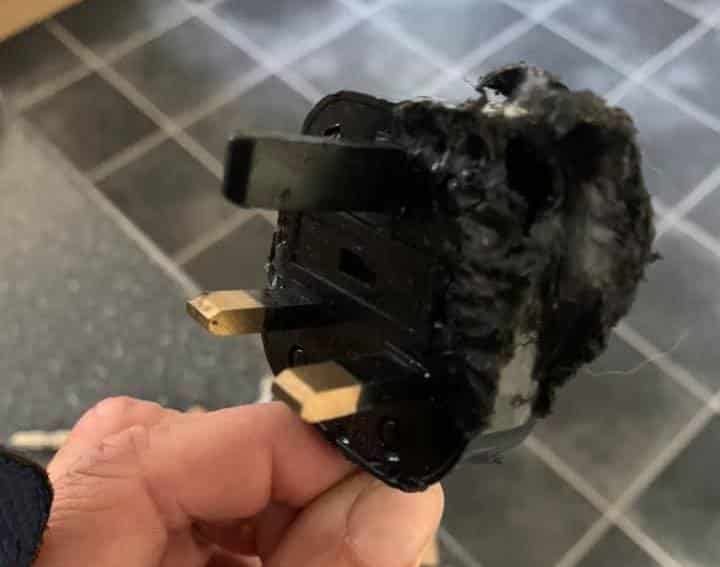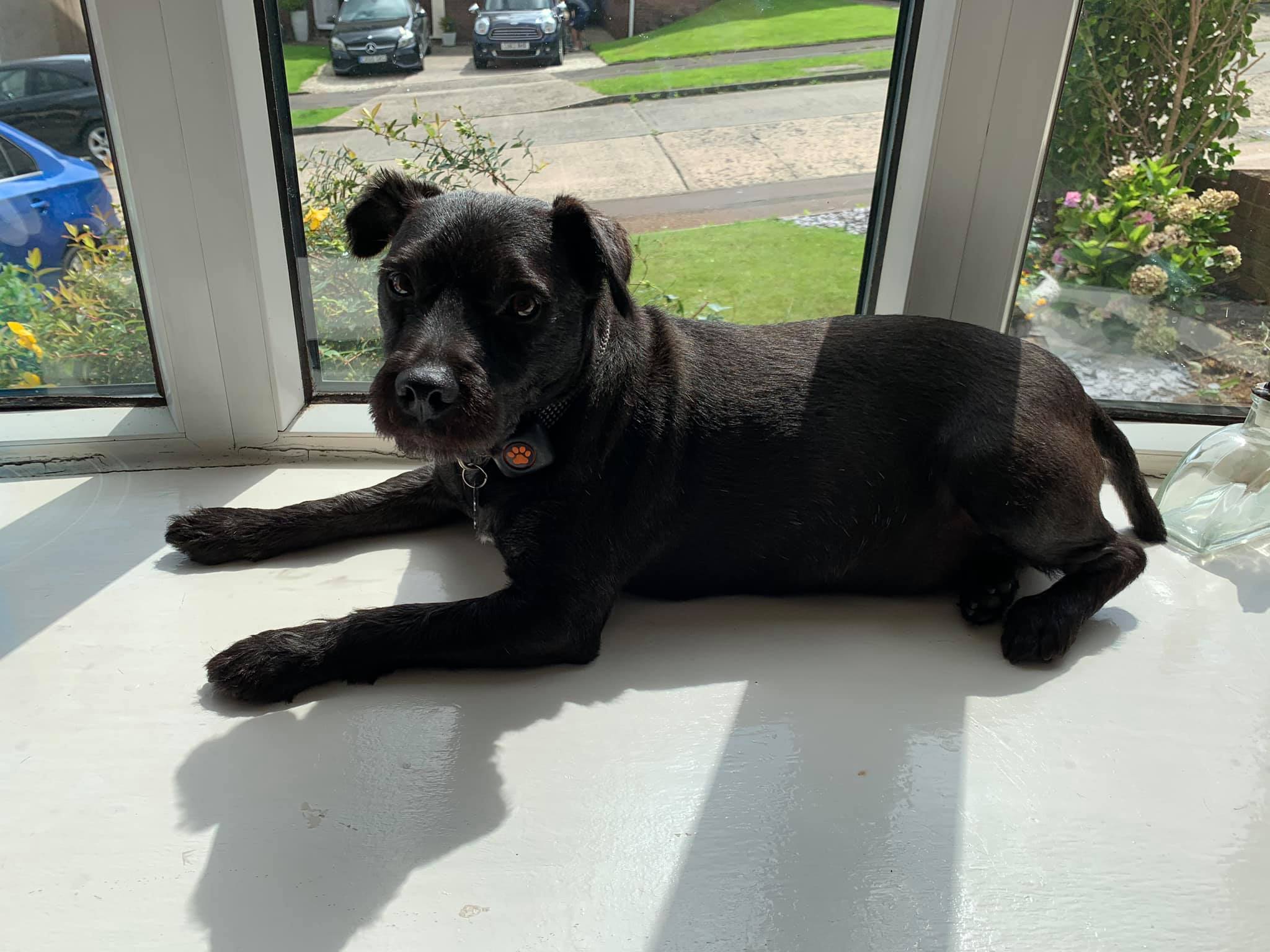Table of Contents
Unfortunately, many Patterdale owners take the plunge without researching the breed beforehand and end up finding themselves screaming, “my Patterdale Terrier is out of control”!
Every dog breed is different. Therefore, it’s essential to take the time and care to truly understand your dog’s breed before you purchase them. This way, you know how they work, and you can use this information to train them and take care of them in the most suitable way.
Patterdales are known to be a handful of a breed, so if you’ve found your dog acting out of control, then you’re in the right place! We’ve put together some advice for dealing with certain misbehaviours and the scenarios that cause them; helping you get your Patterdale back under control.
Why is my Patterdale out of control?
Patterdale Terriers are a working dog breed through and through. Because of this, they have tons of energy that requires high levels of physical and mental exercise to keep them stimulated. Failure to do so can quickly lead to misbehaviour in various forms, including aggression and stubbornness.
This is why so many people seem to struggle with the breed. Without a proper understanding of their requirements, you might assume that one walk a day is all you need to do, but this simply won’t cut it. Patterdales require regular exercise and proper training to keep them under control.

Patterdale Terriers are a highly intelligent breed, which you would assume would make training a doddle. Unfortunately, they will also become bored quickly, resulting in stubborn behaviour that can make training your dog a challenge. It’s important to start training them from a young age in order to get the basics covered. For training tips on obedience, recall and basic commands, check out our article on Patterdale Terrier Training.
Which scenarios cause misbehaviour?
Your Patterdale may be well behaved for the most part, but there could be specific activities or environments that are causing them to act out of control. Let’s explore the most common scenarios in which this happens, along with our top tips for getting your Patterdale back under control.
My Patterdale is out of control on the lead
Many dog breeds, not just Patterdales, will begin to misbehave as soon as they are put on a lead. This often stems from a lack of training and no proper introduction to the equipment.
Walks are a major source of excitement for all dogs, but it’s vital to demonstrate to your Patterdale that you are the one in control and that the lead is merely a tool you use to keep it that way.
Being on a lead can be frustrating for dogs as they can’t do what they want; they can’t wander off, or interact with things, people and other dogs that they may want to. But, again, this ultimately comes down to control, and the best way to reinforce that you’re in charge is through proper training.

Introduce your dog to the lead at home. Before heading anywhere, practise using the lead indoors or in the garden. This way, your dog won’t always associate the lead with walking, as this can trigger excitement levels to peak, leading to the out of control behaviour.
Once you’re both comfortable with the lead, you can head on out. Try to avoid the same route every time you leave the house – Patterdales are clever and easily able to memorise routes; if they know they’re approaching the park, then their excitement levels will rise.
If you find yourself in a situation where your dog begins misbehaving – say you’re approaching a dog, simply turn and walk the other way. Do this every time your dog gets excited and begins to pull towards something. By doing this, you reinforce to your Patterdale that you are the one in control, not them. You can then reward them when they have calmed down and are walking correctly on the lead.
Misbehaviour off-lead & recall
Maybe your Patterdale is an angel on the lead, but take it off, and they turn into a nightmare. Recall is an essential skill that all dogs need to keep them safe. Without proper recall training, your Patterdale Terrier could run away and get lost or get into danger, and you have no way of calling them back!
Recall requires lots of practice. Start at home and just begin rewarding your dog whenever they come back to you when called. Patterdales are incredibly food driven, so find a food that works as a high value treat guaranteed to get their attention every time.
Once your Patterdale comes back consistently, you can experiment with new locations and scenarios. Many owners find it helpful to purchase a long line lead – these are great for giving the dog a similar experience of being off the lead while still maintaining control.
In emergencies, never chase your dog as they will believe you’re playing a game and simply carry on running. Instead, try running in the opposite direction, and they should chase after you and away from the danger.
Out of control around other dogs
Other dogs are a massive trigger for all dog breeds – not just Patterdales. If your dog has never been properly socialised with other dogs, they will inevitably lose control around them!
Try introducing your Patterdale Terrier to a dog you know, whether a friend’s dog or your nan’s pet; just make sure you know they aren’t dangerous. This should help increase their confidence around other dogs and reduce the overreaction that usually occurs.
Rewards and distractions are also great solutions. Most of the time, a reaction to other dogs stems from a place of fear, whether that be fear of the other dogs or a need to protect you. So avoid areas you know to be overly busy with other dogs and keep your Patterdale distracted with rewards or a ball, for example.
Separation anxiety
Another common issue with Patterdale Terriers is separation anxiety, leading to out of control behaviour in the form of whining, howling and barking. Patterdales form solid bonds with their owners, which is excellent for the most part until they are left to their own devices.
The best way to combat separation anxiety is to get your Patterdale used to being left alone for short periods. You can then begin to increase the intervals slowly, helping to reinforce that you will be returning eventually.
Another great way to prevent chewed sofas and complaints from the neighbours is to leave challenges around the home. For example, something as simple as hiding a couple of treats around the house gives your Patterdale Terrier something to keep them occupied, therefore taking their mind off of your absence.
Puzzles and challenges are also great forms of mental exercise and a perfect way to tire your Patterdale out. Also, make sure to physically exercise your Patterdale Terrier before leaving them alone for more extended periods of time. With a good mix of mental and physical exercise, your Patterdale will be too exhausted to destroy your living room!
Try these recommendations and see how they affect your Patterdale’s behaviour. Of course, if your Patterdale is genuinely out of control and no form of training or distractions seem to help, you could always try the service of a professional trainer – just make sure you do your research beforehand.
Generally, the best way to get your Patterdale Terrier back under control is through repetitive training, with positive reinforcement and lots of rewards. This, combined with substantial physical and mental exercise, should result in a well-behaved, happy and healthy Patterdale Terrier.


My Patterdale is a rescue dog and we have had him for 5 years now. Out on a walk he is good but inside the house his barking at cars, people and vans is a nightmare. To the point he has turned on me whilst trying to get him off the sofa. We have tried regarding with treats and his favourite toy but we don’t seem to get anywhere, any advice?
I have a pattersdale. She’s lively but I don’t have a problem with her at all. Guess some people shouldn’t have Dogs?
How can I stop my dog from bitting my clothes even when I distracted him with a toy he will try to bite my clothes and he has taken to dig for stones he only 4 months old can’t take him out yet until he has his 2nd injection